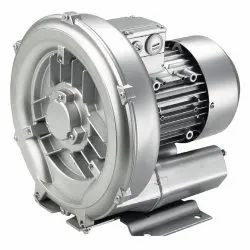Truck Blowers for Liquid and Dry Bulk
Truck blowers are essential for transporting liquid and dry bulk materials efficiently. They come in various types to suit different needs and ensure optimal performance. Here’s a breakdown:
**1. Types of Truck Blowers
**a. Roots Blowers
- Design: Positive displacement blowers with two or three lobes.
- Use: Suitable for high-pressure applications, often used for dry bulk materials.
**b. Centrifugal Blowers
- Design: Uses an impeller to create airflow.
- Use: Typically used for high-volume, low-pressure applications, suitable for both liquid and dry bulk.
**c. Regenerative Blowers
- Design: Creates high pressure using a rotating impeller.
- Use: Ideal for applications requiring moderate pressure, used in dry bulk transport.
**d. Diaphragm Pumps
- Design: Uses a diaphragm to move liquids.
- Use: Best for transferring liquid bulk materials.
**2. Applications
**a. Dry Bulk Transport
- Materials: Powders, granules, and pellets.
- Blower Types: Roots blowers and centrifugal blowers.
- Functions: Pneumatic conveying, filling and emptying silos, and transporting materials to and from trucks.
**b. Liquid Bulk Transport
- Materials: Liquids such as chemicals, food-grade liquids, and industrial fluids.
- Blower Types: Diaphragm pumps and centrifugal pumps.
- Functions: Transferring liquids to and from tanks or containers, ensuring smooth and efficient flow.
**3. Key Features
**a. Capacity
- Description: Measured in cubic meters per hour (m³/h) or cubic feet per minute (CFM).
- Consideration: Choose based on the required flow rate for your application.
**b. Pressure
- Description: Measured in psi or bar.
- Consideration: Select according to the pressure needed for effective material transport.
**c. Durability
- Description: Built to withstand harsh environments and continuous use.
- Consideration: Ensure the blower material is compatible with the transported material.
**d. Control Systems
- Description: Includes manual or automated control options.
- Consideration: Choose controls that match the complexity and automation level of your operations.
**4. Installation and Maintenance
**a. Installation
- Description: Proper installation is crucial for optimal performance.
- Consideration: Ensure alignment, secure mounting, and correct connections to prevent leaks and ensure efficiency.
**b. Maintenance
- Description: Regular maintenance includes checking for wear, ensuring proper lubrication, and cleaning.
- Consideration: Follow manufacturer guidelines to prolong the blower’s life and maintain performance.
**5. Conclusion
Truck blowers for liquid and dry bulk materials are vital for efficient transport and handling. Choosing the right type based on your specific needs, and maintaining it properly, ensures smooth and effective operation. If you have more specific requirements or need advice on a particular model, feel free to ask!
